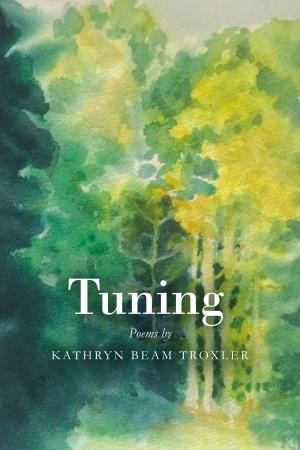| Author: | Joshua Ginsberg | ISBN: | 9781483529653 |
| Publisher: | BookBaby | Publication: | June 16, 2014 |
| Imprint: | Language: | English |
| Author: | Joshua Ginsberg |
| ISBN: | 9781483529653 |
| Publisher: | BookBaby |
| Publication: | June 16, 2014 |
| Imprint: | |
| Language: | English |
Turning the Stars is the latest collection of poetry by writer Joshua Ginsberg. Spanning two decades, this collection of urban verbal snapshots form a collage of different cities, experiences and emotions. Individually Ginsberg’s poems explore themes of love, loss and the search for security within a constantly changing internal and external landscape. Viewed collectively, it becomes a meditation on the passage of time with motifs borrowed from sources ranging from mythology and astrology to pop culture and technology. Ginsberg reexamines relationships and childhood memories through the filters of both nostalgic wonder and hard-won wisdom to come away with insights that are sometimes painful, sometimes comical and always novel. In the words of the poet, "Turning the Stars is, for me, really a kind of temporal meditation. The things that change and the things that remain constant. Over the course of any given night, the starts change positions, spin and turn (save for the North Star). So the phrase, 'Turning the Stars' is essentially another way of saying passing the time." Over the course of the work, the poet achieves and shares with readers a sense of security, stability and comfort in his life and love. Poems like "Magnetic North," "Edge" and "The Delta" explore the transition from seeking out answers and trying to fill in emotional gaps to discovering that the answers are his already. "Urgently Bottled Messages from Ships that Vanished" and "Young Summer Gibberish" both revisit the poet's childhood. "Cuz" is a reflection on the loss of his younger cousin Katie. The final two poems in the collection lend to the collection a sense of contentment and completion within continual change. "The earliest poetry in the collection, dating from my late teen years, has some bite to it," Ginsberg says, "but by the end of the collection, I feel like I've made peace with a lot of the misplaced frustration that consumed so much of my attention when I was young. Writing for me has always been equal parts invocation and exorcism, and over the course of this work I feel that I've achieved both of those ends: summoning, confronting and resolving a lot of the issues I struggled with over the years. I don't come away with all the answers, (how could I when even the fundamental questions evolve and change over time?) but I come away with the ones I need. That's what I hope comes through for the reader." The catalyst for creating the collection came from the cover design, Ginsberg explains. "I was trying to come up with a design for a piece of jewelry for my wife, Jennifer. My own wedding band is a series of turning gears (symbolic to me of both contemplation and industry), so I wanted to use that image. I think of Jen as being my own personal Polaris, the one point of light in my world that always remains fixed and true to guide me home. So I worked on ways to combine those two things - gears and the North Star, and what I arrived at was that design on the cover, which turned out to be a bit too difficult for my jewelry-making friend to create. But the more I studied it, the more it got my wheels turning (pun intended) and it inspired me to compile a new collection of poetry."
Turning the Stars is the latest collection of poetry by writer Joshua Ginsberg. Spanning two decades, this collection of urban verbal snapshots form a collage of different cities, experiences and emotions. Individually Ginsberg’s poems explore themes of love, loss and the search for security within a constantly changing internal and external landscape. Viewed collectively, it becomes a meditation on the passage of time with motifs borrowed from sources ranging from mythology and astrology to pop culture and technology. Ginsberg reexamines relationships and childhood memories through the filters of both nostalgic wonder and hard-won wisdom to come away with insights that are sometimes painful, sometimes comical and always novel. In the words of the poet, "Turning the Stars is, for me, really a kind of temporal meditation. The things that change and the things that remain constant. Over the course of any given night, the starts change positions, spin and turn (save for the North Star). So the phrase, 'Turning the Stars' is essentially another way of saying passing the time." Over the course of the work, the poet achieves and shares with readers a sense of security, stability and comfort in his life and love. Poems like "Magnetic North," "Edge" and "The Delta" explore the transition from seeking out answers and trying to fill in emotional gaps to discovering that the answers are his already. "Urgently Bottled Messages from Ships that Vanished" and "Young Summer Gibberish" both revisit the poet's childhood. "Cuz" is a reflection on the loss of his younger cousin Katie. The final two poems in the collection lend to the collection a sense of contentment and completion within continual change. "The earliest poetry in the collection, dating from my late teen years, has some bite to it," Ginsberg says, "but by the end of the collection, I feel like I've made peace with a lot of the misplaced frustration that consumed so much of my attention when I was young. Writing for me has always been equal parts invocation and exorcism, and over the course of this work I feel that I've achieved both of those ends: summoning, confronting and resolving a lot of the issues I struggled with over the years. I don't come away with all the answers, (how could I when even the fundamental questions evolve and change over time?) but I come away with the ones I need. That's what I hope comes through for the reader." The catalyst for creating the collection came from the cover design, Ginsberg explains. "I was trying to come up with a design for a piece of jewelry for my wife, Jennifer. My own wedding band is a series of turning gears (symbolic to me of both contemplation and industry), so I wanted to use that image. I think of Jen as being my own personal Polaris, the one point of light in my world that always remains fixed and true to guide me home. So I worked on ways to combine those two things - gears and the North Star, and what I arrived at was that design on the cover, which turned out to be a bit too difficult for my jewelry-making friend to create. But the more I studied it, the more it got my wheels turning (pun intended) and it inspired me to compile a new collection of poetry."















